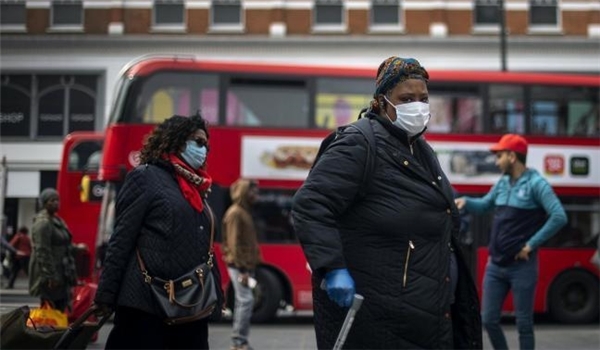
TEHRAN (FNA)- Structural and systemic racism is among the key risk factors that has contributed to the high death rate in Wales of black, Asian and minority ethnic people, a report commissioned by the devolved government concluded.
The report, which is to be published on Monday, makes more than 30 recommendations to address the socio-economic and environmental risks it highlights, The Guardian reported.
Prof Emmanuel Ogbonna, who chaired the group that produced the report, said the central issues raised had been identified many times before the COVID-19 crisis but had not been addressed.
He said, “There’s an overall theme running through our research for this report. It centres on longstanding racism and disadvantage and the lack of BAME representation within decision-making processes.”
Ogbonna, who is the vice-chair of Race Council Cymru, added, “The coronavirus pandemic is, in some respects, revealing the consequences of a lack of action on race equality. Many of the issues we’ve highlighted have been identified and discussed previously but they haven’t been addressed in any systematic and sustained way.”
Ogbonna said people were not dying of COVID-19 directly because of their ethnic origins. Instead, it was because their backgrounds exposed them to the type of jobs that put them more at risk and made them more worried about complaining about issues such as a lack of PPE.
He said, “Sometimes when you try to discuss these issues it looks as if you are stirring trouble and it’s easier to leave them in the background.”
Ogbonna said it helped that the Welsh Health Minister, Vaughan Gething, is black and he acknowledged the Labour-led government had worked to make the country more equal but said, “You need concerted efforts to make change and I don’t think we have that. Racism is like coronavirus – you can’t see it but it is there.”
The report highlighted a number of key socio-economic and environmental risk factors, including:
- Communication of health information, and how effective it is.
- Cultural issues relating to the suitability of health and social services for BAME communities.
- Income and employment insecurity, which is experienced disproportionately by BAME communities.
- Poor quality of ethnicity data, which is preventing accurate analysis.
- Housing overcrowding and environment.
- The financial burden created by migration status.
- The role of structural and systemic racism and disadvantage.
An analysis by the Office for National Statistics (ONS) of COVID-19-related deaths across England and Wales by ethnicity has shown people from a BAME background are at a greater risk of death involving COVID-19 than other ethnic groups.
Population density, socio-demographic factors and region partly explained the increased risk but after adjusting for these, black men were still twice as likely to die as white men, while for black women the risk was 1.4 times higher.
The ONS analysis also found Bangladeshi, Pakistani and Indian men had a higher chance of dying than white men.
The Welsh First Minister, Mark Drakeford, launched an urgent investigation in April to understand the reasons for the higher risk of coronavirus among BAME communities.

No comments:
Post a Comment